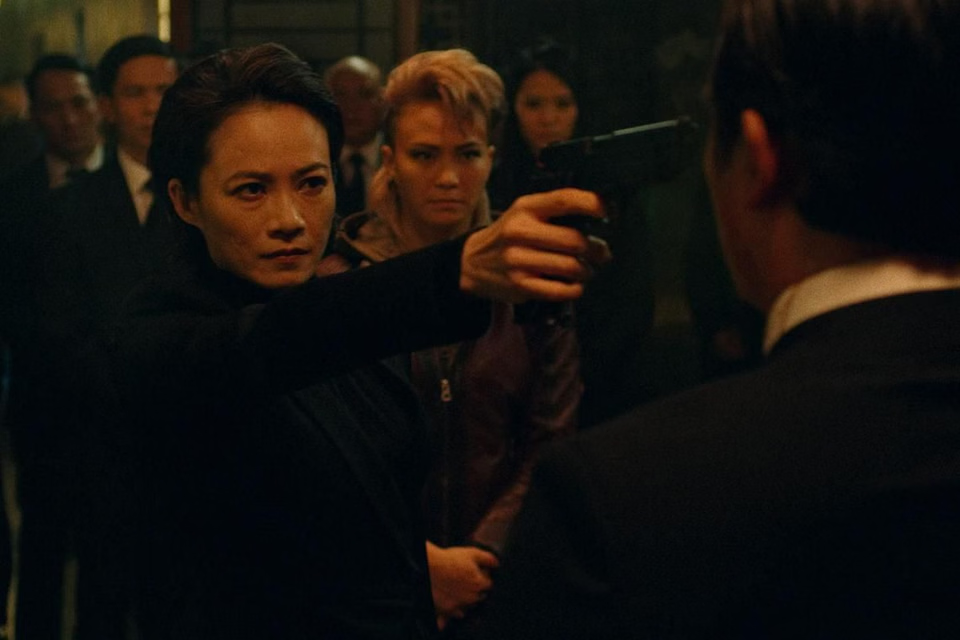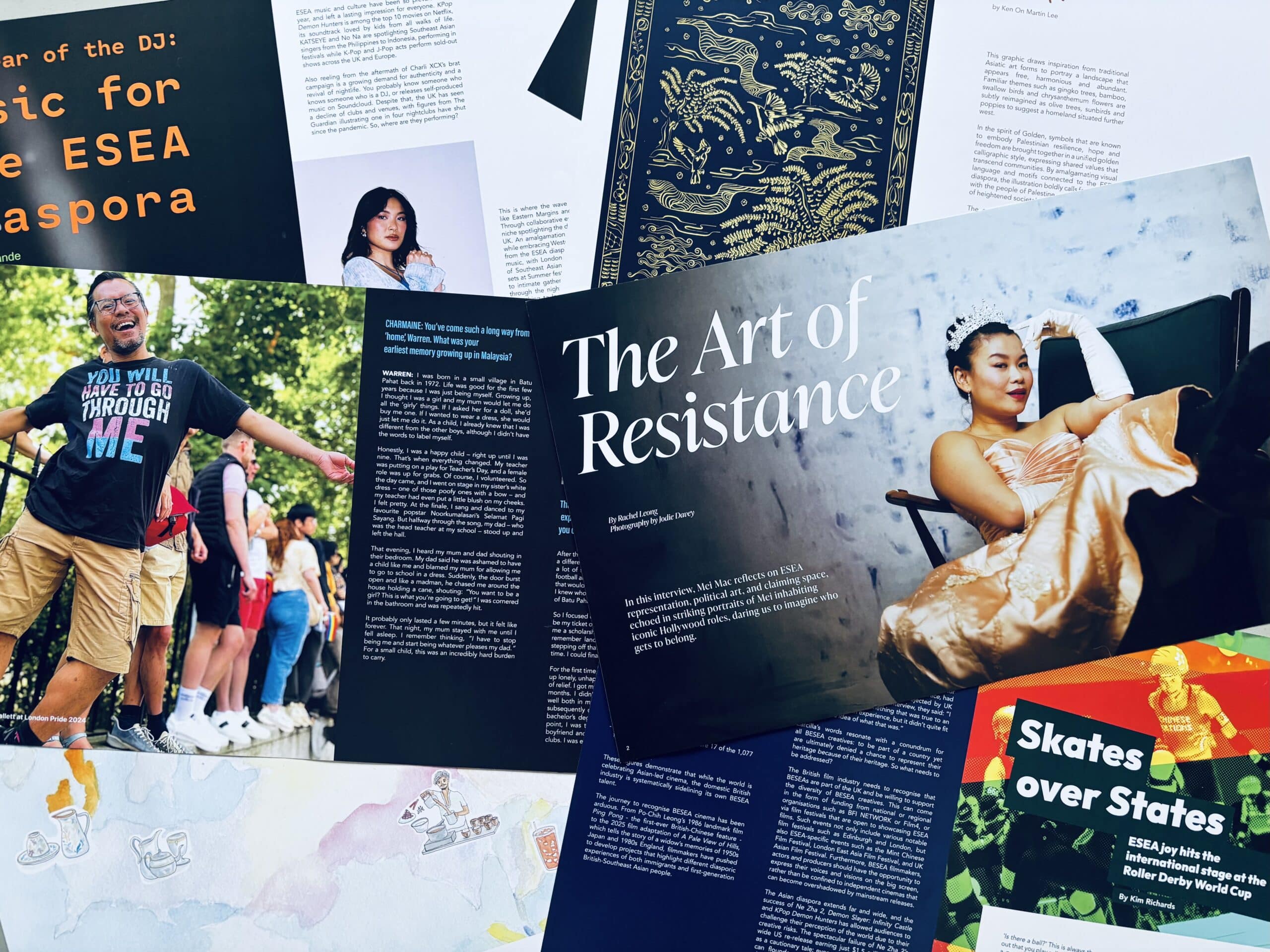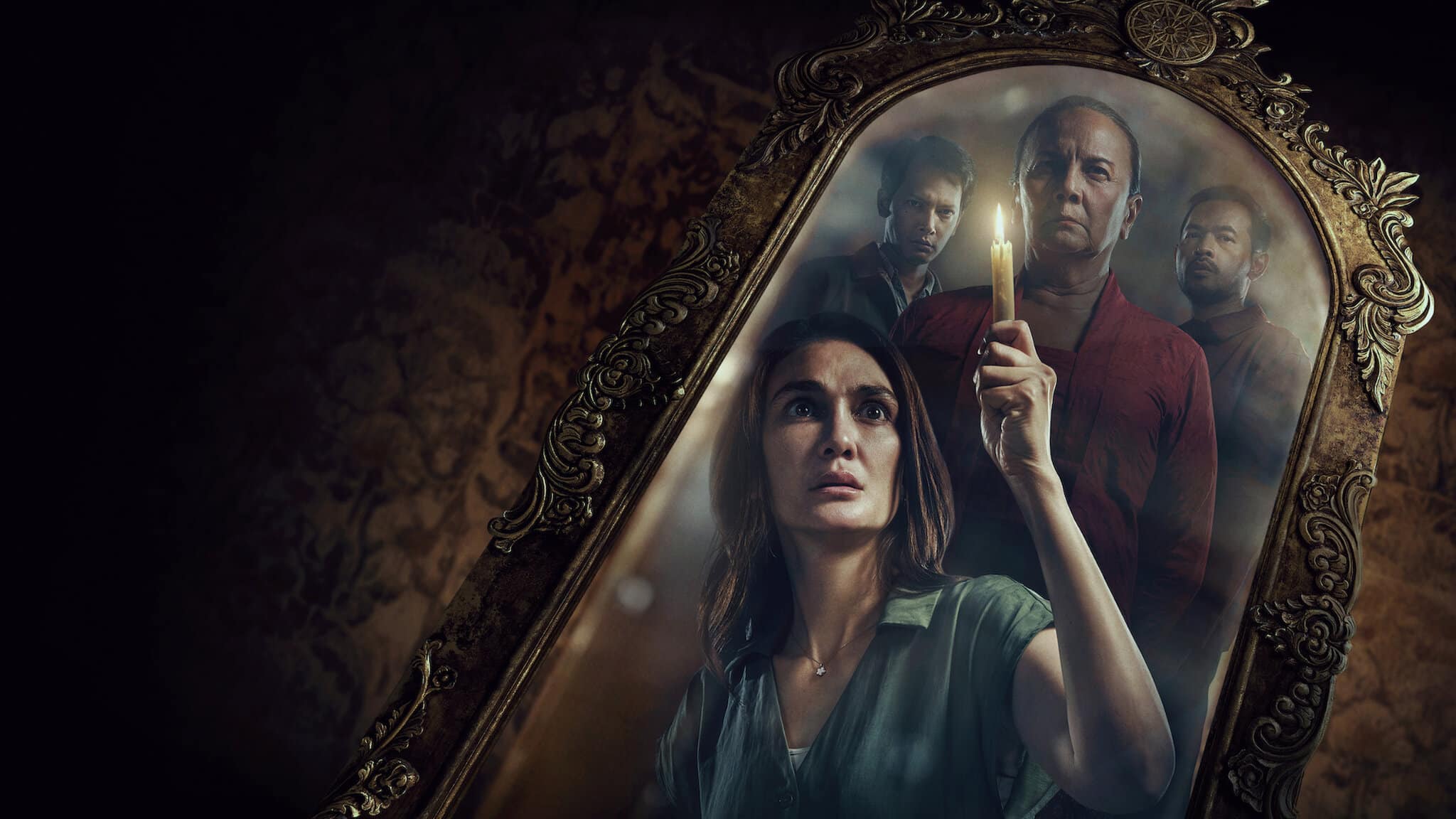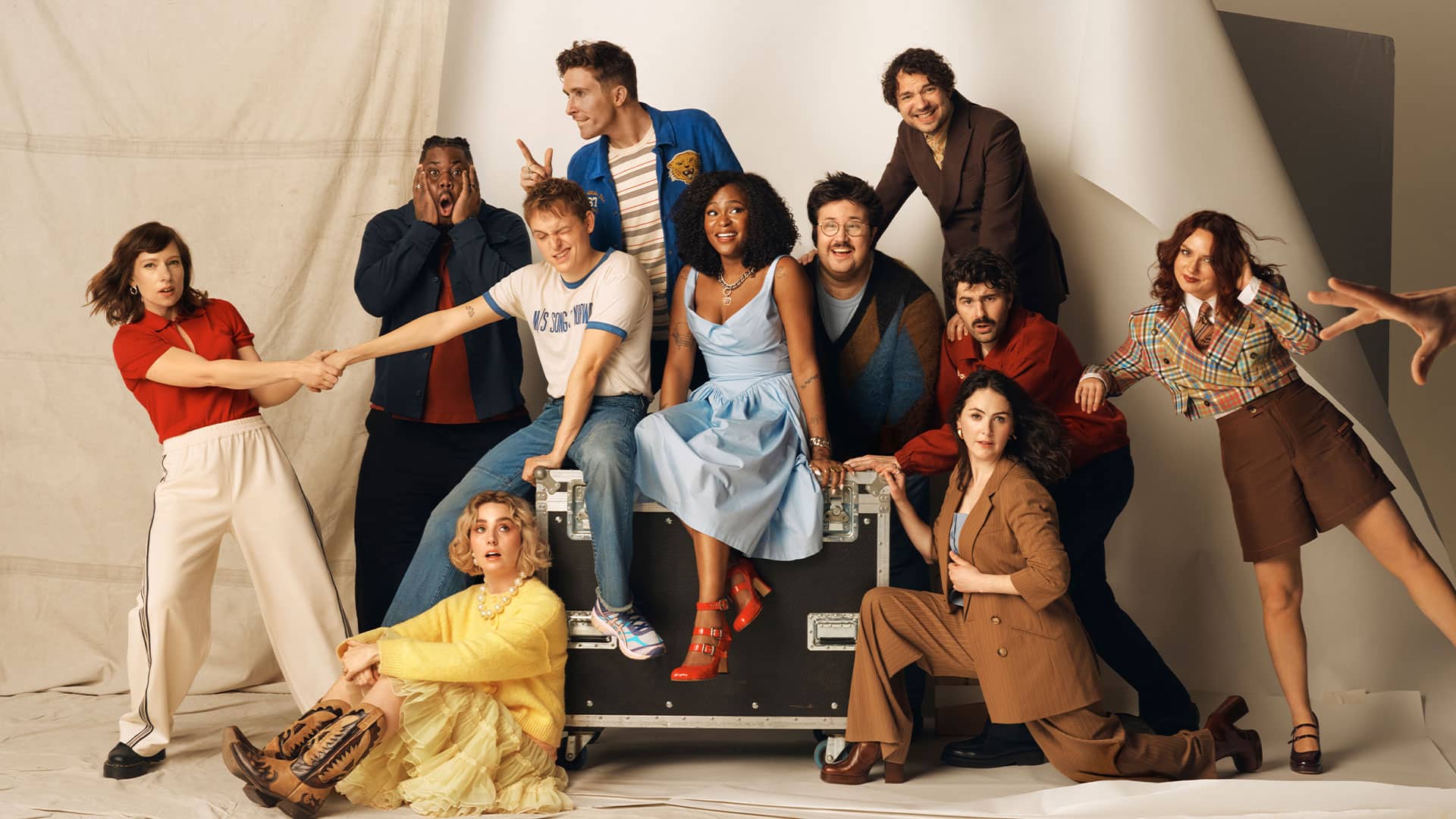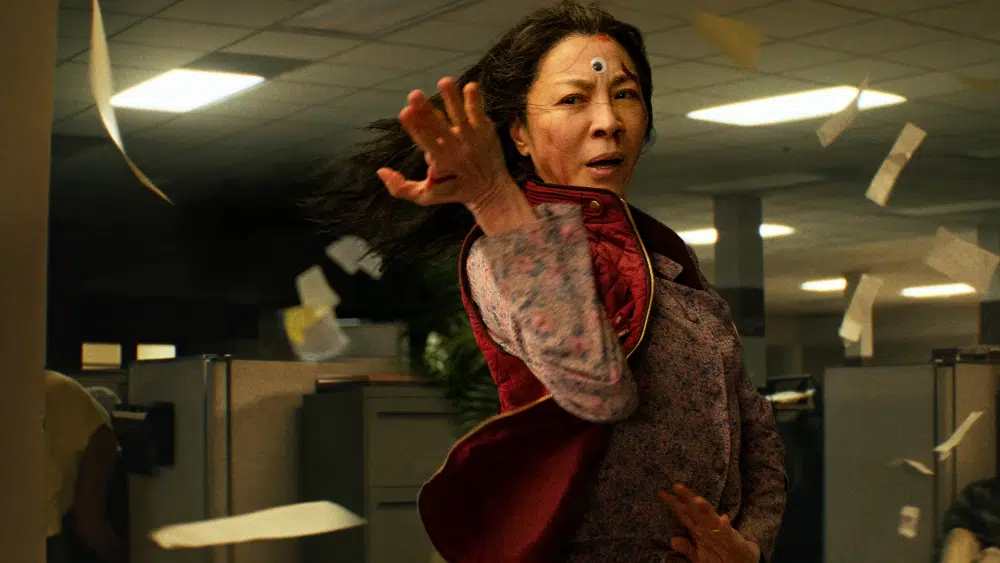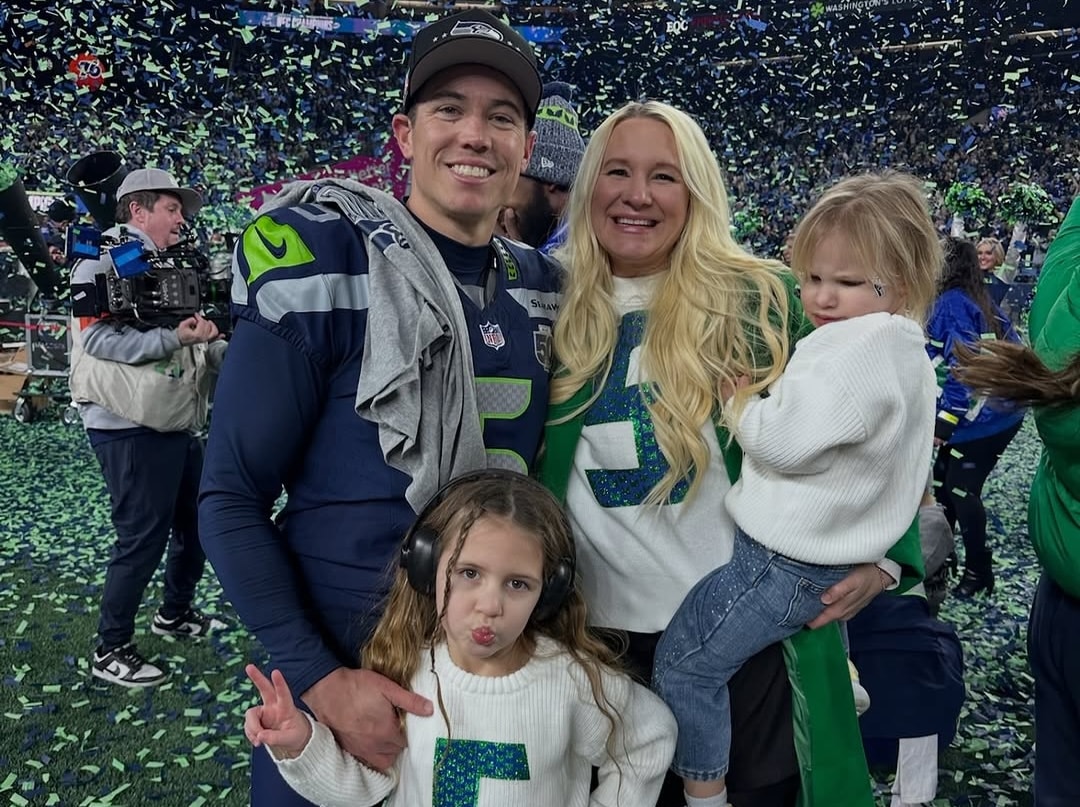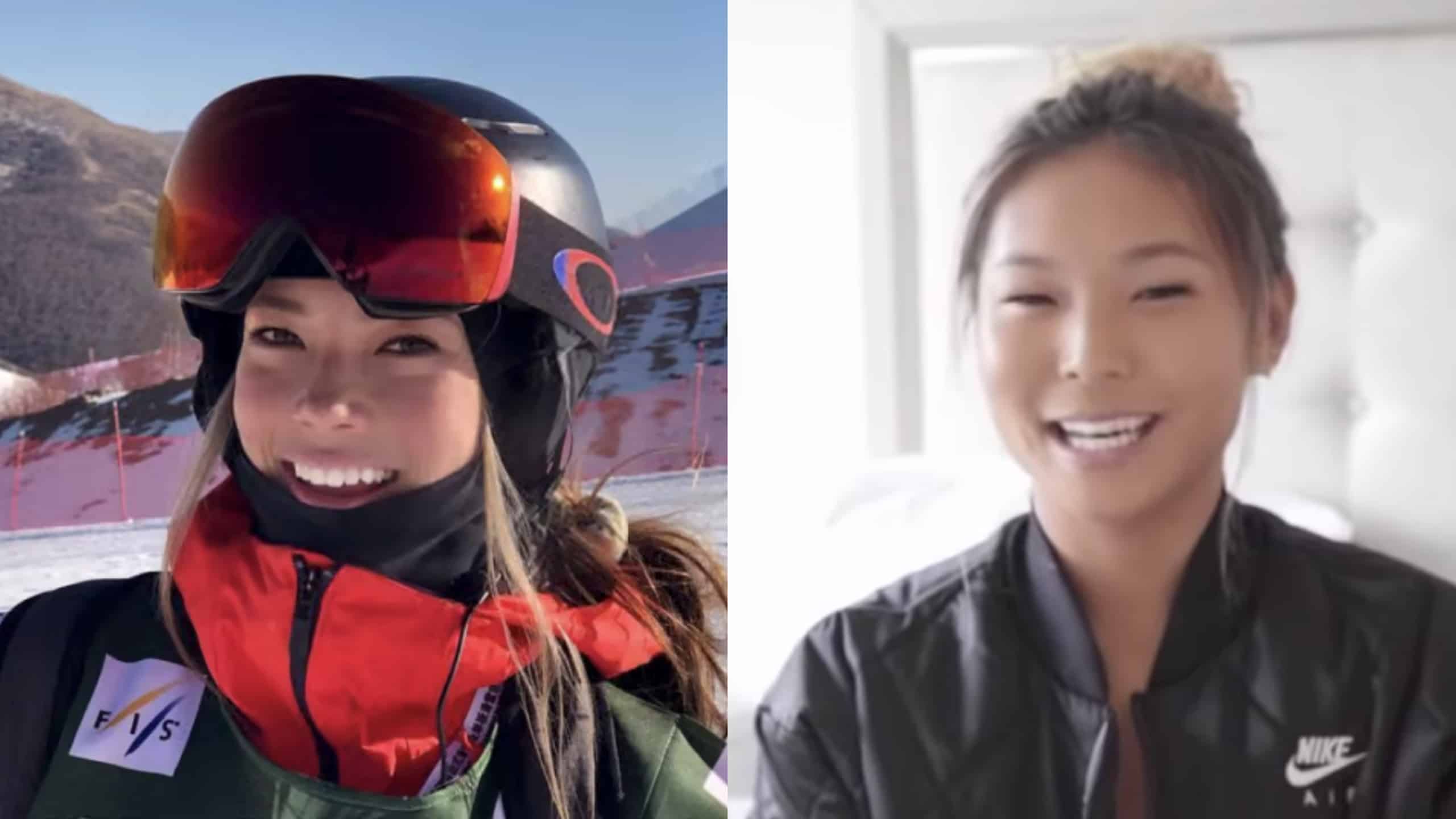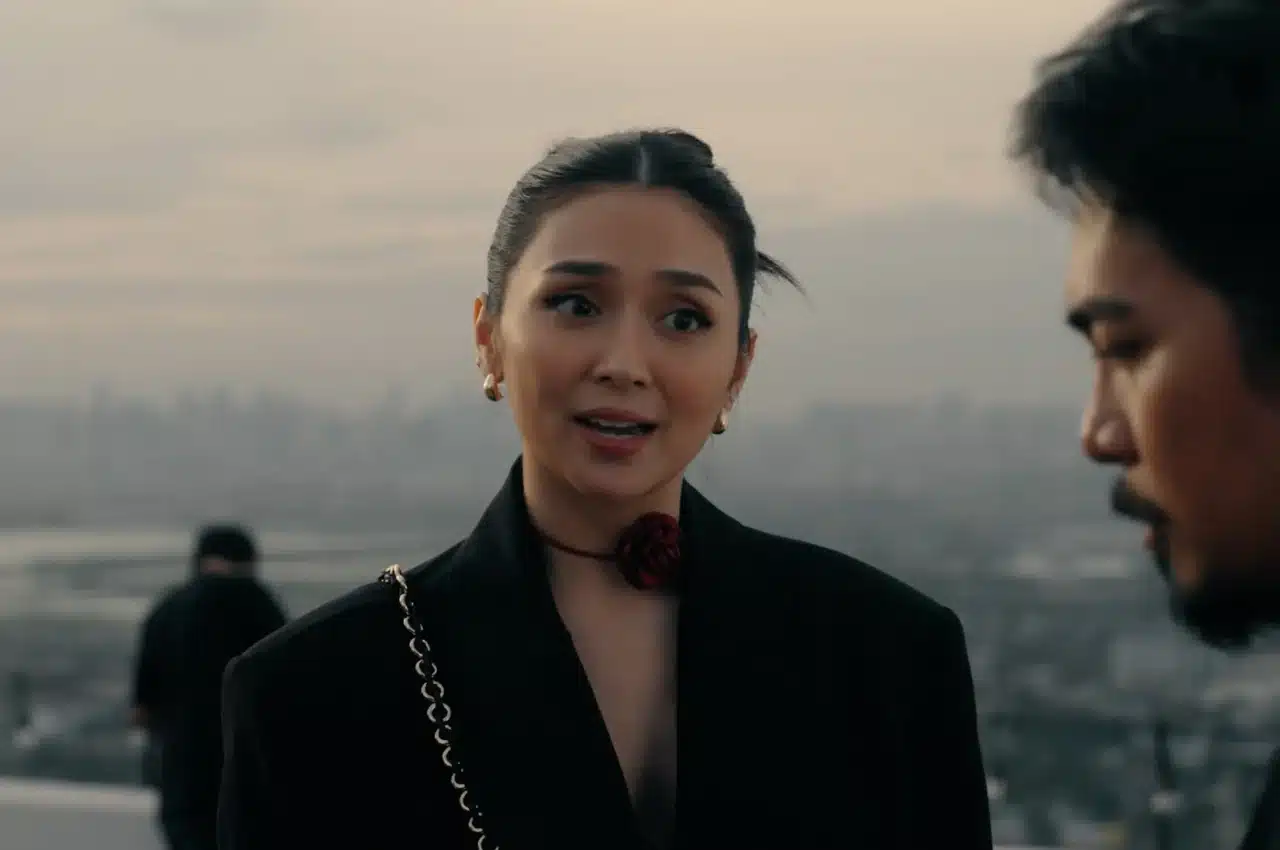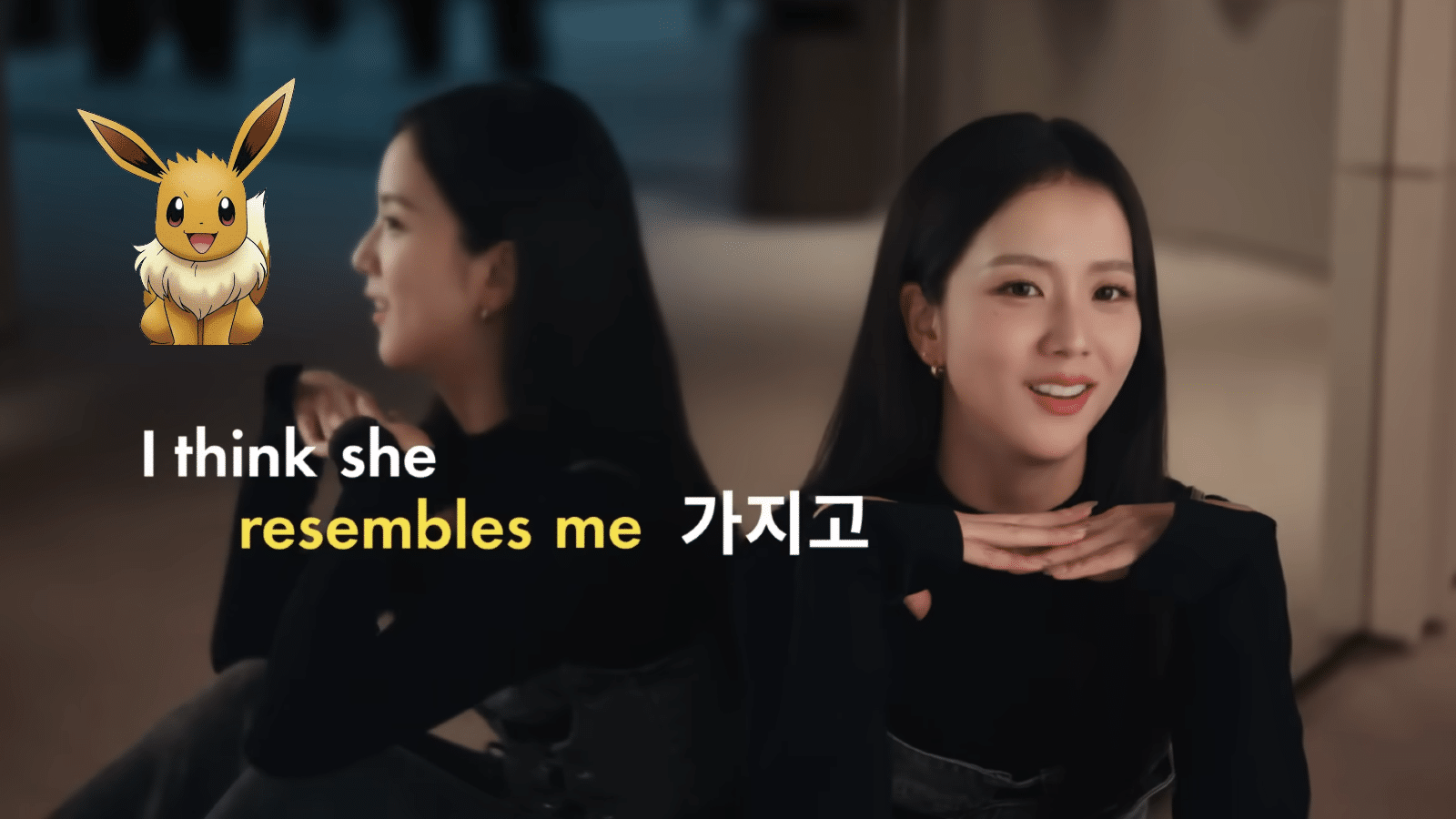As Yeo Yann Yann sits across from me, joyfully sharing heartfelt stories of her upbringing and sentimentally recounting her journey, the Malaysian actress couldn’t be more removed from her vengeful, hate-filled, villainous character, I saw her viciously portray in Netflix’s latest action flick, Havoc.
Indeed, from sharing heartfelt stories of her upbringing in Johor Bahru to detailing vivid memories of basquing in the picturesque Welsh scenery in the days leading up to shooting Havoc, there’s no indication that this graciously warm actress could be capable of embodying such an intimidating menace on screen. But that’s the true sign of an actress who’s perfected her craft.
With a career spanning theatre, TV, and film, as well as across borders between Malaysia, Singapore, the US, and the UK, Yeo has developed formidable experience in the industry and has become an increasingly recognisable face.
Her latest work, Havoc, hit Netflix earlier this week and sees Yeo working alongside the likes of Hollywood giants Tom Hardy and Forest Whitaker. In the action-packed thriller, Yeo plays the “Mother”, the mother of Tsui (Jeremy Ang Jones) – the head of the local Triad, who is tragically gunned down. Seeking vengeance and retribution, Mother engages her troops in a brawl of gang violence in the name of justice for her son.
In an exclusive interview with Resonate, Yeo reflected on her a career and transforming into “Mother.”
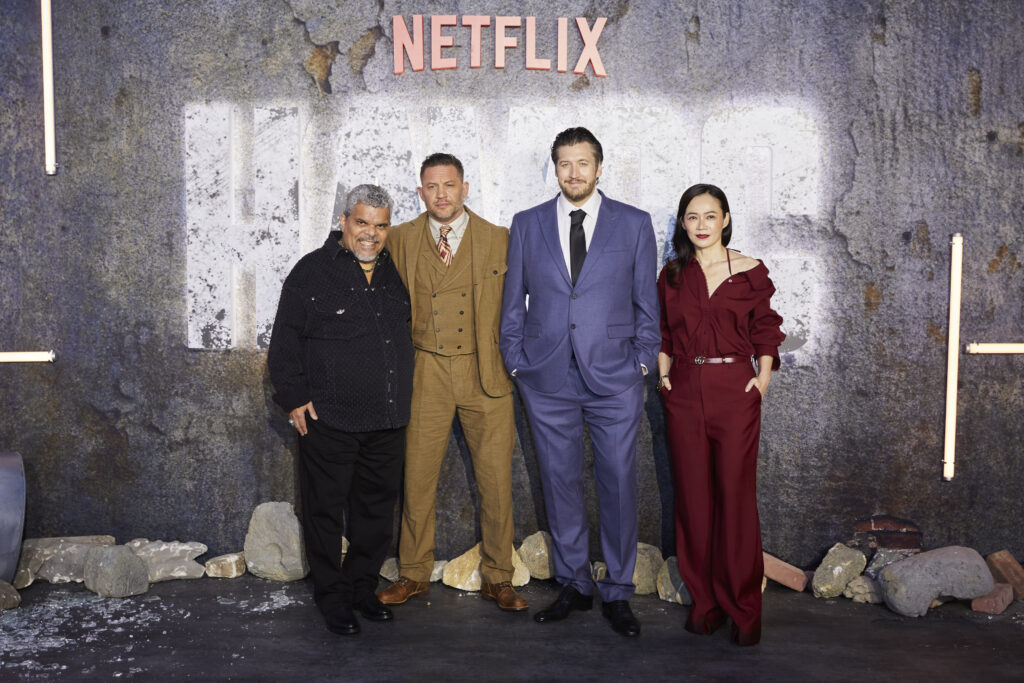
CC: What made you want to get into acting? Maybe growing up in JB (Johor Bahru) shaped that desire?
YYY: Well, we all have dreams, right? The very first time I remember wanting to be “the person inside the box” was when I was about six or seven years old. I was watching a Taiwanese film, and I saw this girl crying and reading something — and I started crying too.
But I didn’t want anyone to see me cry, because I lived in a fishing village. My grandmother had a video player, which was rare at the time, so all the neighbourhood kids would come to her house to watch films. I didn’t want to be the only one crying.
In my heart, I thought: if I were the girl inside the box (the TV), then I could cry freely. I wouldn’t have to hide my tears. That was the first time I thought: maybe I want to be the person inside the box.
CC: That’s quite a unique perspective!
YY: Yeah — that’s my earliest memory of wanting to be an actor. Later on, in high school, I was really into sports. I was on the windsurfing team. But one day, I was asked to represent the school at the drama club’s anniversary celebration. I went — and I had so much fun that I quit the windsurfing team after four years to join the drama club. That’s how it really started for me, during high school.
CC: Were there any actors or movies that really inspired you back then?
YYY: Of course! I was very influenced by Singaporean actors. In JB, we watched a lot of Singaporean productions like Under One Roof? Shows like that — I grew up watching them. They really made me want to act.
Also, at the time, there were huge competitions between schools. Some of my schoolmates wanted to enter drama competitions, so I went along too. Of course, I didn’t win anything — I was just an extra sitting in the second row! But I continued with theatre anyway.
After high school, I came to Singapore and started working different jobs. Back then, there were no full-time paid theatre actors in Singapore — everyone had a day job, and theatre was more amateur.
I started auditioning and got into a play. Rehearsals were intense — we’d work for about three months.
One day, a senior from my high school told me that a TV station was looking for young actors for a Chinese sitcom on Channel 8. They said, “You’re about 18, right? You should audition!” So I did — and I got the role. I think I was about 19 then.
That was my first job.
CC: Wow!
YYY: It was very lucky. The TV station was famous for being tough on young, inexperienced actors. But my producer Michael Woo and my director were really kind to me. If I forgot my lines, they would just gently say, “Miss Yeo, you better remember your lines,” instead of scolding me harshly.
I’m always grateful for that. If they had been mean, I don’t know if I would have continued acting. I did two seasons of that sitcom, then later worked on a radio drama where I played the younger sister of the boss. That was quite fun too.
Then, a senior called me again and said a theatre director — Kuo Pao Kun, basically the father of Singapore theatre — was auditioning young actors for a play. I went for the audition, and I got it.
We rehearsed for half a year — not in a formal professional way, but more like intense training. Kuo Pao Kun had experienced actors supporting us, while young people like me, with zero experience, took the main roles. I had no idea what I was doing. I’d go home and cry every night because I didn’t understand half of what he said about acting.
He kept talking about “passion.” I didn’t understand — I felt like I was already giving everything I had!
The play was about young gangsters — about youth burning their lives away. It was intense. Half a year later, during the performances, I saw my co-actor, who had 20 years of experience, and realised how much I still had to learn.
She was on stage for about 15 minutes, but I was on stage for an hour and a half. But when the play ended, everyone was looking for her. They were like, “She’s so good!” And I was just sitting there… like being forgotten.
She was so sparkling. She looked amazing on stage. She captured everybody’s eyes. She was able to hold her character so well. I was using all my strength throughout the performance, but no one was asking for me.
But I think one of my good qualities is that I’m not jealous. I was just like, “How? How can I be like that?” How to be like her?
CC: How did you develop your craft from there?
YYY: One day, my mentor spoke to me. He said, “I’m going to set up a school.” He asked if I would like to audition. I said yes. I went for the audition.
At that time, I didn’t really perform in English—I mostly spoke Mandarin. I had studied English in school but wasn’t fluent in speaking it. For the audition, I had to prepare two monologues, one in Mandarin and one in English. It was terrifying.
Later, he told me they were going to put me into the school. But I had no money—because I had dropped out of my media studies, and my mom cut off my financial support.
I went to the school for three years. At the time, it was called the Theatre Training and Research Programme (TTRP). I was part of the first batch. Basically, the program combined training and research. Now it’s called the Intercultural Theatre Institute.
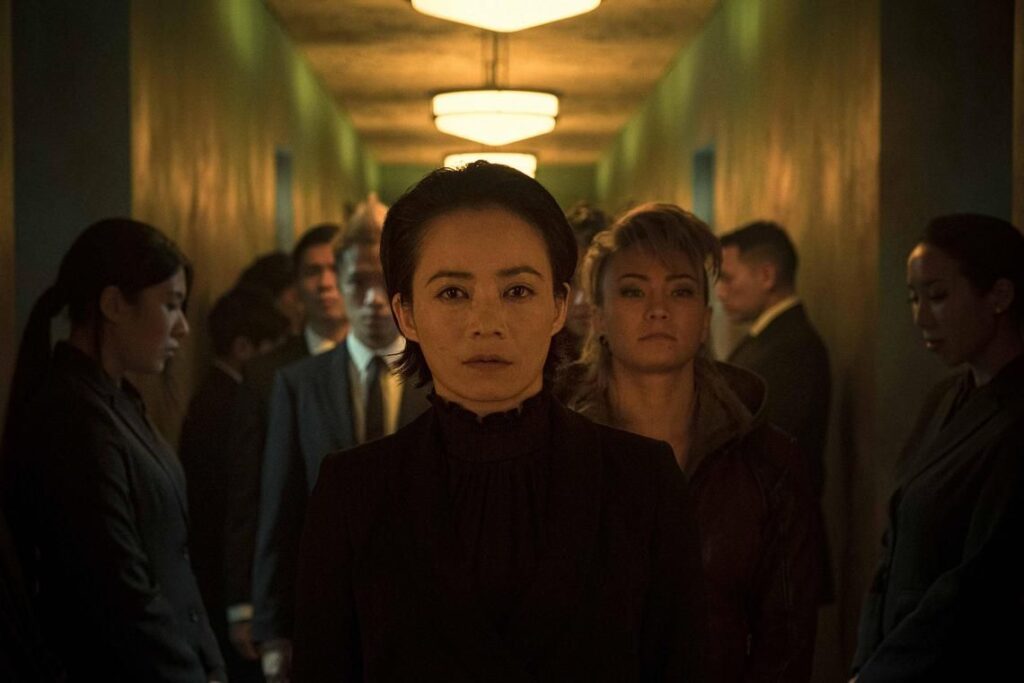
CC: What were the teachers like?
YYY: I had two major teachers. One was from Beijing’s Central Academy of Drama.
He was a retired teacher, and his teachings were based on the Stanislavski method.
Another acting teacher came from Australia—he was more experimental. Throughout the three years, we had to learn various types of Asian traditional dance and performance styles— like Indian Bharatanatyam, Japanese theatre, and Indonesian wayang orang (human puppet theatre).
Wayang orang is like human shadow puppetry. Instead of walking forward directly, you move sideways, like a puppet. It’s a very beautiful and artful form.
The program wasn’t about training us traditionally—it was about helping us find the “Asian body” for theatre, blending Asian traditions with the Western theatre structure. The research is ongoing even today.
CC: Would you say you prefer theatre or film/TV acting?
YYY: I actually enjoy all of them. In theatre, actors have more control.
Once you’re on stage, the director can’t yell “cut.”
You have to carry through the entire emotional journey from start to finish.
In film or TV, it’s different. There are always jump cuts—you film scenes out of order.
You have to understand your character’s journey deeply to keep it consistent.
CC: It sounds like Singapore used to have a thriving theatre and film scene when you entered the industry. But you were joking earlier, that it feels more like just a small community.
YYY: Yeah. It’s always been a bit like that. Globalization is a good and bad thing. Local content became weaker because now we have access to productions from all over the world—streamers, YouTube, Netflix.
When I started, you could only access TV with a subscription or free local TV channels.
Now, you can access everything.
CC: But isn’t that true everywhere? In Indonesia, Thailand, even Malaysia, the film industries have advanced. You see Indonesian thrillers trending on Netflix. But Singapore hasn’t really developed in the same way.
YYY: Yeah. Part of it is because Singapore is very small. Our audience size is small, and that limits local production opportunities.
Look at Korea—they created a whole Korean wave that has captured global audiences. It’s about creating productions that connect universally, not just depending on audience size.
Read more: South Korean Content Is Dominating Netflix – Just Behind the U.S.
But I guess Singapore’s indie film scene is very strong. There are people thriving in Singapore who have won many international visual awards. But again, with the smaller population, when you come back to Singapore, ticket sales are actually not enough to sustain it.
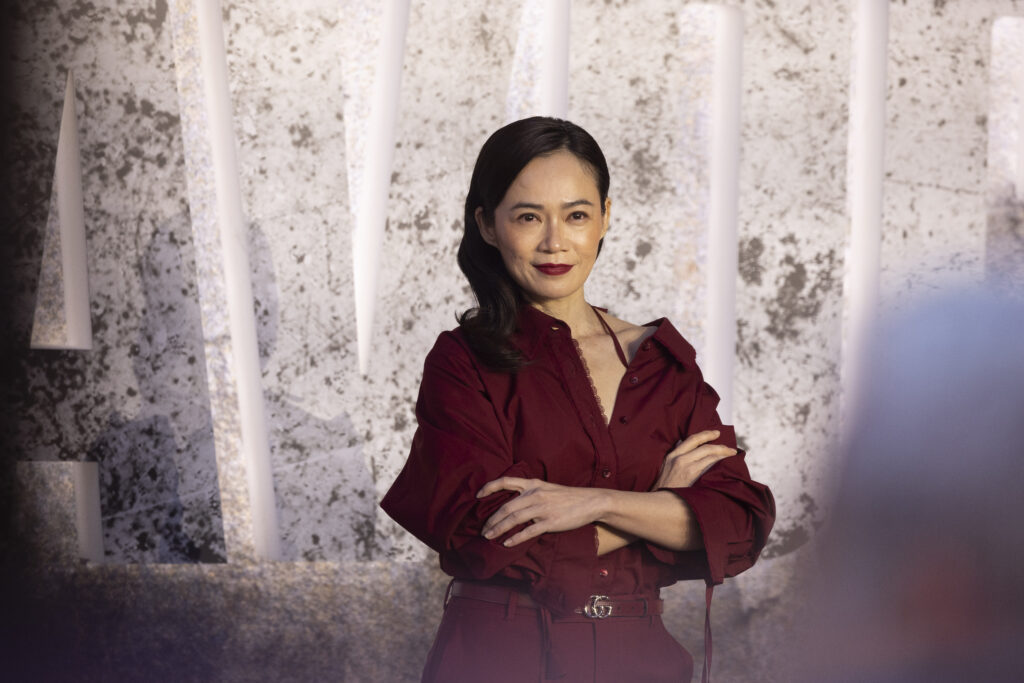
CC: Walk us through how you ended up on Havoc.
YYY: 10 years ago, I did a production called Invisible Stories in Singapore, an HBO Asia production. It had six or seven interconnected episodes, and I was the lead in one — I played the mother of an autistic child. That role got me nominated for an International Emmy.
One of the casting directors for Havoc happened to be a jury member that year. She remembered me and recommended me for the role of the mother.
So when Gareth Evans (the director) was casting, he heard about me from both sides. We had a Zoom meeting — it was still during COVID — and had a great chat. I had already watched Gangs of London and was curious about full-fledged action films. Physically, I think I can do action — but for this role, the mother didn’t need to be flipping around or anything.
Gareth was really generous. He shared the script with me, and we discussed it. I suggested some minor adjustments, because as a mother myself, I thought — maybe she was just resting or relaxing when she got the news about her son’s death. That’s what kicks off all the crazy events in the story.
It’s such a painful loss, but at the same time, she’s a leader. She can’t show weakness. She has to grieve and seek vengeance while holding everything together.
CC: Considering how action-heavy Havoc is, the mother was quite a complex character. She’s a leader, a grieving parent, but also the villaine. Was that a challenge for you? Did you enjoy playing that kind of role?
YYY: Oh, I loved it. I could throw all my dark energy into it! That’s the beauty of being an actor — you get to explore your dark side safely. Everyone has a dark side and a bright side. Acting lets me vent and play.
CC: How did you find the violence?
YYY: Well, one day on set, Gareth asked if I wanted to see some footage.
He showed me a laptop clip — it was the bar fight sequence. I was like, “Whoa, that’s brutal!” I even joked, “Those are my people!”
Then he showed me another short scene — just five seconds — and again, I was like, “That’s my crew, wicked!” It was funny because I had never seen my own fight scenes stitched together like that before.
CC: And your fighters weren’t just men either, right?
YYY: Right — you usually only see men in action films. Here, there were women fighters too. Michelle Waterson is the sweetest person you could ever meet. But when she’s fighting, you don’t want to mess with her. She’s very scary when she’s fighting. She’s a real MMA fighter. You should see her bruises.
CC: What was it like working with industry giants like Tom Hardy and Forest Whitaker?
YYY: I shared almost all my scenes with Forest but not Tom. Forest is so professional, sweet, and personable. We actually had a movie night together, watching Shang-Chi! Forest enjoyed it tremendously.
CC: What did you learn from Forest?
YYY: We were on set during the lighting setups. We usually sit beside the camera, watching how they do it. It’s not a simple process, and I learned how it’s done. So, we would find a spot and observe.
We were always alert, watching, and learning, while helping with details. Patience is key because when we’re patient enough to sit and watch, we catch all the details.
CC: So, what’s next for you? Now that you’ve experienced working in Western productions, do you plan on exploring more of that, or are you more rooted here?
YYY: I hope to explore more. But it’s not something I can fully control; it’s up to the universe. I’d love to work with Clint Eastwood! I’m working on another film with Anthony Chan too.
CC: Finally, do you have any words of wisdom for aspiring Singaporeans?
YYY: It will be tough, but it’s also very rewarding. Stay patient. I think patience is key!
Feature Image: HAVOC. Yeo Yann Yann as Mother in HAVOC. Cr. Courtesy of Netflix © 2025

